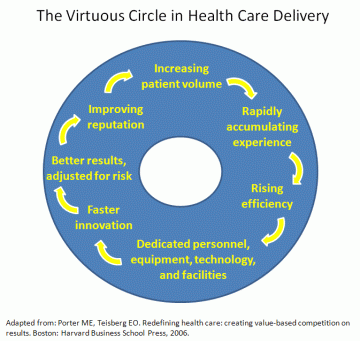Finding a Surgeon
Find your care
We deliver effective, minimally invasive treatments in a caring environment. Call 310-267-7838 to connect with an expert in endocrine surgery.
Finding an Expert Parathyroid Surgeon
How to choose a surgeon for parathyroid surgery
Fortunately, most parathyroid conditions are not an emergency. The disease tends to progress slowly in most cases, permitting patients to consider their options before proceeding with surgery electively. Everyone wants the best possible result. In other pages, we have extensively discussed the importance of safety and success (see Strategies and priorities in parathyroid surgery) as well as the influence of surgeon experience on patient outcomes (see Success rates of parathyroid surgery).

Finding an expert parathyroid surgeon (or a surgeon for any type of procedure, really) is actually rather similar to being in the market for a superb Italian dinner. Going to the pizza place down the street is unlikely to give you what you are looking for. On the other hand, if someone were to tell you that the only way to get a good Italian meal is to fly to Rome, you might question the truth of that claim.
Most of us would probably ask a few knowledgeable friends, consult a guidebook or two, and perhaps look at some (ideally unbiased) websites. And of course you would consider the cost of the meal before calling to make a reservation. Most of us, certainly those living in major US cities, would find a terrific place within driving distance, and those living in remote or rural areas might have to travel a bit. And that would be the end of the story. Once again this is common sense.
In an ideal world, transparent outcomes information for each hospital and each doctor would be readily accessible to the public. We are not quite there yet in the US, but we are getting closer with each passing day (see Healthcare quality and safety).
Currently, what we have as a surrogate marker of quality in surgical outcomes is patient volume, or how frequently a given procedure is performed in a given hospital or by a given surgeon. Now, it is certainly possible to perform many operations and do a poor job, and likewise it is possible to perform a few operations and do a good job. So volume is not a perfect indicator, but it is what we have. In our opinion, patient volume is an indicator of the “Virtuous circle of health care delivery” as described by Porter and Teisberg in 2006 and depicted in the figure. Having high patient volumes drives experience and efficiency. It motivates health care providers to dedicate specialized resources to managing a specific set of medical conditions. This in turn drives innovation which leads to better outcomes. The improving reputation that follows then brings more patients, and the cycle continues.
Indeed this explains why high-volume endocrine surgery centers almost invariably have the most modern and accurate scanners and diagnostic equipment, as well as dedicated anesthesia teams and nurses. If you are treating hundreds to thousands of patients with thyroid, parathyroid, and adrenal disease each year, investing in these expensive resources is well worth it.
As we have detailed in other pages, we recommend that all patients being evaluated for parathyroid surgery undergo routine ultrasound examination of the thyroid and parathyroid glands by a surgeon experienced in both thyroid and parathyroid surgery (see Parathyroid Disease and Thyroid Disease Commonly Occur Together). Thyroid and parathyroid disease frequently co-exist, and thyroid cancer rates have increased greatly in the United States over the past three decades. Given how frequently parathyroid disease and thyroid cancer occur together, it is statistically inevitable that solely operating on the parathyroids without ultrasound evaluation of the thyroid will lead to thyroid cancers being left behind untreated. Ultrasound permits careful advance planning of thyroid and parathyroid surgery by creating a roadmap for the operation and should be performed routinely.

Within the endocrine surgery community, a surgeon who performs 50 or more parathyroid operations per year is considered an expert parathyroid surgeon. These surgeons can be found through the American Association of Endocrine Surgeons (AAES). In order to become an AAES member, a fully-trained surgeon must first become a fellow of the American College of Surgeons, then submit a case log of thyroid, parathyroid, and adrenal operations (thereby demonstrating high volume and dedication to the field of endocrine surgery) to a council, and then commit to attending regular scientific conferences in order to keep current with the latest research and techniques in endocrine surgery.
For several years, we at UCLA have fielded phone calls and emails from across the country and throughout the globe from patients looking for expert endocrine surgeons. Our practice has been to refer the great majority of these patients to our trusted colleagues within the AAES and its sister organization the International Association of Endocrine Surgeons (IAES). Finally, the number of patient requests became so great that we collaborated with the AAES to create the AAES Surgeon Finder, a web page that allows you to type in your zip code and find AAES members close to your home.
The AAES Patient Education Site is visited by thousands of users each day. Each week, thousands of prospective patients browse individual surgeon profiles within the AAES Surgeon Finder to learn about and make contact with expert endocrine and parathyroid surgeons.
UCLA Endocrine Surgery has no financial relationship with the AAES. There is no benefit to UCLA if you visit the AAES website or if you seek consultation with AAES members outside of UCLA. In other words, we have no conflicts of interest and have no motive to deceive you in this regard.
If you are seeking an expert parathyroid surgeon, the best place to start is with the AAES Surgeon Finder. At least meet with one or perhaps two of your closest AAES members before making any further decisions. Virtually none of them will charge you a phone consultation fee or chart preparation fee. These costs are generally bundled with the cost of your initial face-to-face consultation and should be covered by your insurance company (common sense will tell you that this is, after all, why you pay your insurance premiums).

Final thoughts on finding an expert parathyroid surgeon
Looking back at some of our recently added pages, we realized how unusual a website we have created. It is a website that encourages people to use common sense. Very rare indeed, probably because there is almost no money to be made in reminding people to trust their own good judgment. (Most marketing campaigns aim to achieve precisely the opposite effect.) But recall that UCLA is a public university funded by taxpayers, so this is just what we do.
If you are having trouble finding the endocrine surgery resources you need, please contact us for assistance. We can help point you in the right direction. There is no charge for this service.
References
- Chowdhury MM, Dagash H, Pierro A. A systematic review of the impact of volume of surgery and specialization on patient outcome. Br J Surg. 2007 Feb;94(2):145-61. Review. PubMed PMID: 17256810.
- Porter ME, Teisberg EO. Redefining health care: creating value-based competition on results. Boston: Harvard Business School Press, 2006.